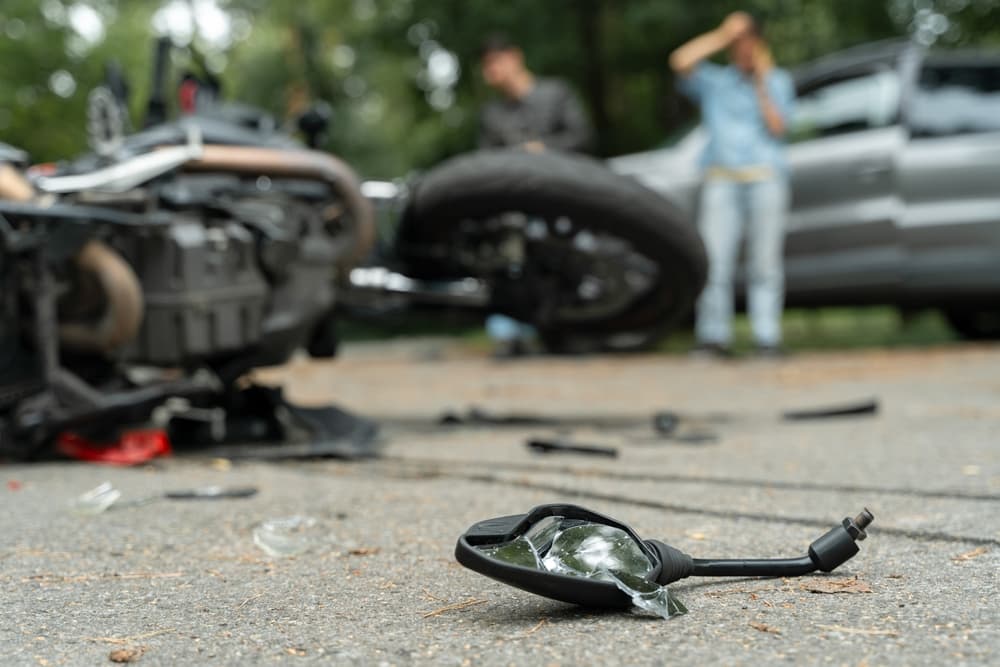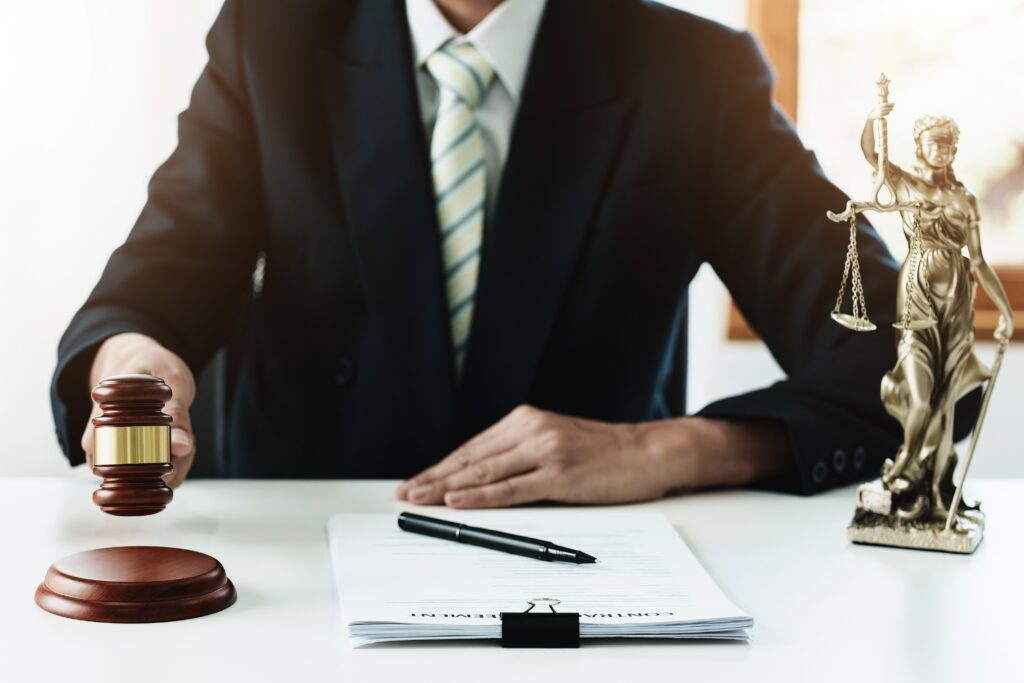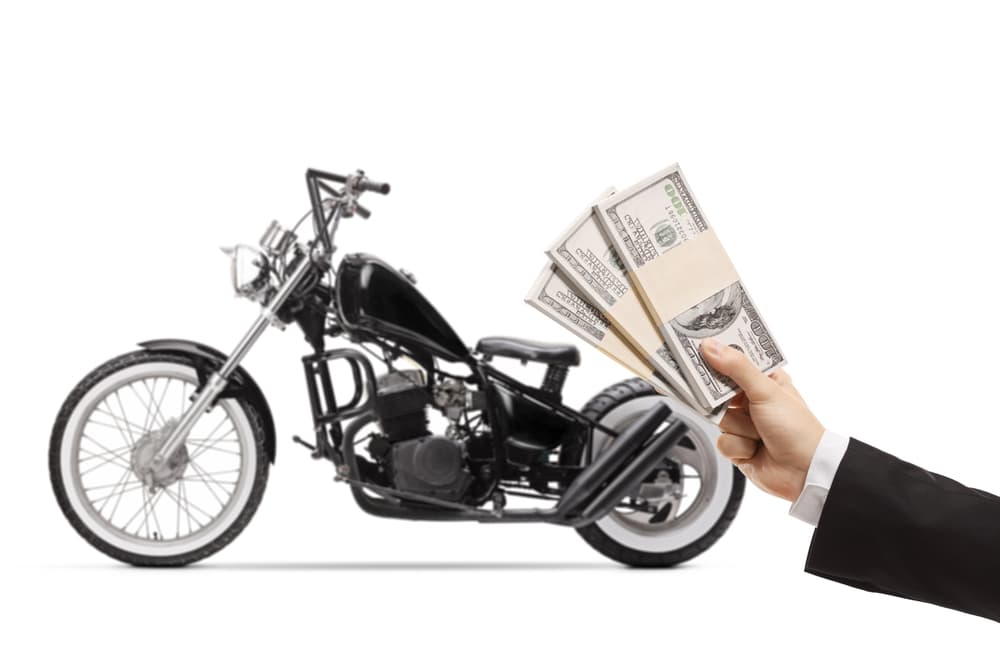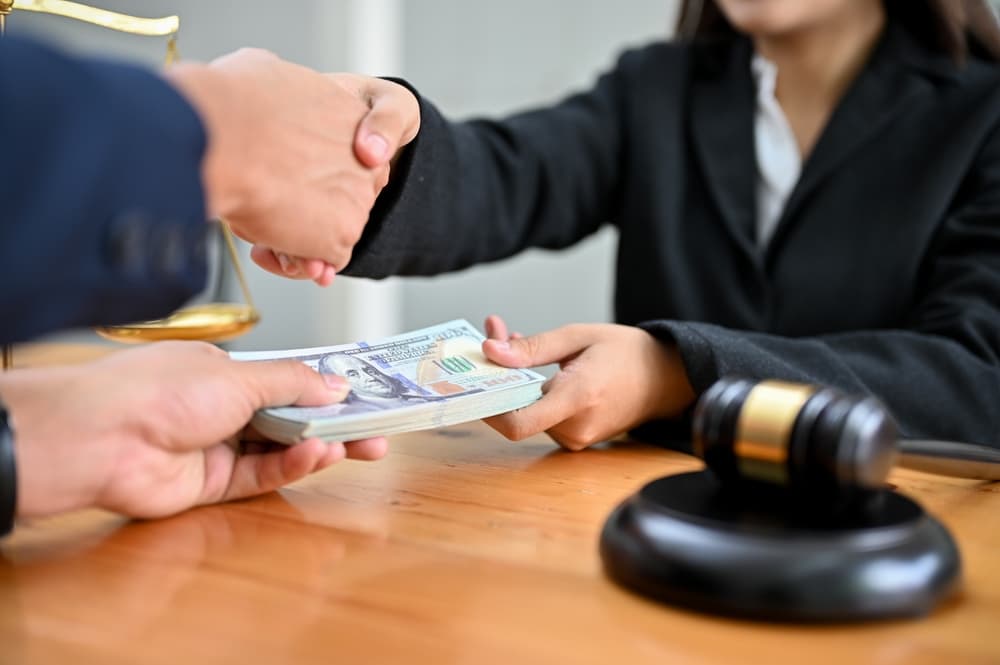A motorcycle accident changes life in an instant, and for many riders, life post-accident is never quite the same. The twisted metal of your damaged bike tells only part of the story—the rest is written in medical appointments, insurance phone calls, and sleepless nights wondering how you’ll manage the countless challenges ahead.
The weeks and months following your accident will test your resilience in unexpected ways. While there is much to do after the motorcycle accident, hiring a trusted attorney should be among your first steps. Every decision you make in these crucial early weeks can impact your recovery for years to come, and your Manassas motorcycle accident attorney will help you make the right decisions for your health and long-term financial stability.
Immediate Steps After Your Motorcycle Accident

Brief, to-the-point checklists can be helpful when you just want to know what to do after a motorcycle crash, so here it is:
Get medical attention immediately, even if you feel okay. Adrenaline masks pain and some serious injuries associated with motorcycle crashes don’t show symptoms right away.
Document everything you can. Even if you have left the accident scene, you might photograph your motorcycle, maintain a daily journal describing pain, financial pressures, and other accident-related challenges, and keep any documents that can be relevant to your case.
Don’t sign anything from insurance companies beyond basic incident reports. Avoid giving recorded statements until you’ve hired your motorcycle accident lawyer—insurance adjusters are skilled at getting you to say things that can hurt your case later.
Contact a personal injury attorney as soon as possible. Most offer free consultations, and waiting too long can mean lost evidence and missed deadlines, possibly including the statute of limitations for your case. The sooner you have professional guidance, the better protected and at ease you will be.
How Will an Attorney Help with Your Case?

Dealing with a motorcycle accident can feel like learning a foreign language at a time when you just want to rest and heal. There may be deadlines you’ve never heard of, forms that make little sense, and people whose job seems to be to pay you as little as possible.
A capable attorney doesn’t just know this world—they work in it daily and can guide you through it without the constant stress of wondering if you’re making the right moves.
Your Lawyer Will Uncover What Happened
Your motorcycle accident attorney is going to dig into the details of your accident. While you’re focused on healing, they will be collecting puzzle pieces that will tell the real story of your crash.
The post-accident investigation process typically involves:
- Taking photos of any skid marks
- Tracking down witnesses before their memory becomes unreliable
- Racing to get security camera footage before businesses delete it
- Bringing in crash reconstruction experts, especially if there is no footage of the crash
- Obtaining police reports
If any other evidence helps tell the story of your accident, your lawyer will secure it for your case.
An Attorney Is a Shield Against Insurance Companies
Here’s the thing about insurance adjusters—they’re not your friends, even if they sound friendly on the phone. In fact, their implied goal may be to pay you as little compensation as possible, saving their employer money in the process.
The tone changes when you have an attorney handling conversations with insurance representatives. Insurance companies know they can’t effectively use bad-faith tactics with experienced motorcycle accident lawyers as they might with inexperienced accident victims.
Your Lawyer Will Handle the (Critical) Financial Aspects of Your Case
Most people have no idea how to put a dollar value on their pain, lost time at work, lost quality of life, or even the replacement value of a totaled motorcycle. Attorneys deal with these financial considerations every day.
Your lawyer will know what similar cases have settled for, what juries typically award, and most importantly, they won’t let you accept a quick, lowball settlement that might tempt you but ultimately leave you struggling.
Your Courtroom Representative: When Things Get Serious
Sometimes, insurance companies just won’t play fair, no matter how strong your case is. If this happens, your attorney may advise you to let them take your case to trial. A lawyer will handle everything from filing the lawsuit to making oral arguments and questioning witnesses before a jury.
Trust a motorcycle accident attorney to handle every detail of your case from A to Z. They will lift a heavy burden off you, helping you focus on healing without facing the stress of insurance claims and lawsuits.
How Should You Act During Your Case?
You’re probably reading this because you want to know what you should do after the accident. After you hire your lawyer, you need only:
Stay Connected with Your Lawyer
Return calls promptly, be completely honest when answering your lawyer’s questions and prompts, and don’t hesitate to ask questions. Your attorney can only help if they know what’s really going on with your case and your recovery.
Follow Your Treatment Plan
Attend every appointment, follow doctor’s orders, and take prescribed medications. Skipping treatment or ignoring medical advice gives insurance companies ammunition to claim you’re not as hurt as you claim or that you’re unnecessarily dragging out the recovery process.
Don’t Be Too Social
Insurance companies may monitor your social accounts for evidence contradicting your case. Avoid posting photos or statements detailing anything that can hurt your case, whether it’s commentary about the crash, statements about your injuries, or photos of you engaging in physical activity.
Keep Relevant Records
Save all medical bills, document lost earnings, and keep a journal detailing how your injuries affect daily life. These records may help prove your damages. And, of course, follow your motorcycle accident lawyer’s advice, which will promote a favorable case outcome.
Your Attorney Will Figure Out Who’s Negligence Caused the Crash
Understanding how your accident happened isn’t just about closure—it’s vital for determining who bears responsibility for your injuries. Motorcycle accidents stem from various forms of negligence, which can include:
Driver Distractions
Driver inattention ranks among the most common causes of motorcycle crashes. Many accidents occur when drivers are simply not paying attention to the road. Distracted and inattentive drivers may:
- Make left turns without checking for oncoming motorcycles
- Change lanes without proper mirror checks or signal usage
- Follow too closely behind riders
- Fail to check blind spots before merging
The list of distractions is endless, but it’s ultimately the drivers’ responsibility to recognize and avoid those distractions.
Road Hazards and Maintenance Failures
Poor road maintenance creates hazardous conditions that affect motorcycles disproportionately. When government entities fail to address dangerous road conditions, their negligence may cause serious accidents. Potholes and uneven surfaces may cause riders to lose control, inadequate signage may fail to warn of construction zones or road hazards, and poor lighting in areas where visibility is critical for safety can directly contribute to a crash.
Vehicle Defects and Manufacturing Issues
Vehicle defects represent another hazardous symptom of negligence. Manufacturers must produce safe vehicles and motorcycles, and when they fail, the consequences can be catastrophic.
Impaired and Reckless Driving
Impaired driving continues to plague our roads, with drunk or drugged drivers posing enormous risks to motorcyclists. These cases often involve clear-cut liability, but securing fair compensation from an impaired driver (or their insurer) is not always as easy as it should be.
What Damages Can I Recover in a Motorcycle Accident Case?

The compensation available in a motorcycle accident case should reflect the serious nature of these crashes and their long-lasting impact on victims’ lives. Some common damages include:
Medical Expenses
Medical expenses form the foundation of most motorcycle accident claims. Riders often have severe injuries requiring extensive treatment, with head injuries being the most common reason for motorcyclists being hospitalized.
Recoverable medical expenses in your case might include the cost of:
- Emergency room treatment and ambulance services
- Hospital stays and intensive care unit expenses
- Surgical procedures, including anesthesia costs
- Physical therapy and rehabilitation services
- Medical equipment like wheelchairs, braces, or prosthetics
- Prescription medications for pain management and recovery
- Any future medical care you may require
Lawyers and doctors become close allies when a rider suffers an injury, and this close relationship ensures that medical needs are thoroughly documented.
Lost Income and Other Professional Damages
Lost income and diminished earning capacity can represent significant components of motorcycle accident claims. Some professional damages that can cause losses include:
- Time missed from work during the initial recovery, which may cause you to lose your normal pay
- Reduced hours or capacity if and when you return to work
- Loss of promotion opportunities due to absence
- Inability to perform previous job functions
- Need for career retraining or a job change
- Lost benefits like health insurance or retirement contributions
All accident-related professional harm will be part of your lawyer’s case.
Pain and Suffering
Common examples of pain and suffering among riders include:
- Chronic pain that interferes with sleep and daily activities
- Depression and anxiety due to the traumatic experience
- Loss of ability to enjoy hobbies and other recreational activities
- Embarrassment or self-consciousness about scars or disfigurement
- Fear of riding motorcycles or driving in general
- Impact on intimate relationships and family dynamics
These intangible losses are often the most significant part of your recovery, even though they’re harder to quantify than medical bills.
Property Damage Costs
Property damage in motorcycle cases often extends beyond simple repair or replacement. Riders frequently lose expensive protective gear, custom modifications, and personal items destroyed during the crash.
Wrongful Death Damages
The number of fatal motorcycle accidents continues to trend upward, with each collision leaving a rupture in survivors’ lives that can include:
- Lost financial support
- Loss of companionship
- Funeral costs
- Medical expenses
- Pain and suffering, including but not limited to grief
Your damages will be your lawyer’s primary concern, as those damages are the very reason why riders seek compensation after their accidents.
Who Might Be Liable for Your Motorcycle Accident?
To secure fair compensation for an injured rider, a lawyer needs to know who must pay, and liable parties can include:
- Individual drivers and vehicle operators: Car drivers who fail to yield, follow too closely, or operate negligently.
- Employers and corporate entities: Companies whose employees (like delivery drivers, commercial operators, employees on work errands, or using company vehicles) cause accidents while working.
- Government entities and municipalities: Cities, counties, and state departments responsible for dangerous road design, failure to repair known hazards, inadequate signage, poor intersection design, or improper traffic signal timing.
- Product manufacturers: Motorcycle manufacturers, helmet makers, tire companies, vehicle parts manufacturers, and aftermarket component manufacturers whose defective products contribute to accidents or worsen injuries.
- Property owners and businesses: Entities that create hazardous conditions like oil spills on roadways, unsafe parking areas, unmarked construction hazards, or activities that obstruct visibility.
Your attorney will rely on evidence, the details of insurance policies, their understanding of the law, and their creative legal mind to determine who should cover your damages.
Contingency Fees: The Client-Friendly Agreement That Enables Every Rider to Hire Their Lawyer

The contingency fee is a godsend for many riders who want a lawyer’s help but have little money to spend on legal services. Here’s how it works:
- You don’t pay upfront: Your lawyer only gets paid if you win money from your case. No win, no fee.
- You get relief at a highly stressful time: You won’t have legal bills piling up on top of your medical bills and missed paychecks.
- Standard rates: Most injury lawyers take about one-third of whatever you recover, meaning you know the deal and won’t have to pay out of your pocket.
- You actually come out ahead: Even after paying your lawyer’s cut, you should end up with more money than if you tried to handle everything yourself.
Succeeding in an insurance claim or lawsuit is hard, so clients are generally happy to share a fair percentage of their financial recovery with the lawyer who worked tirelessly to deliver that financial recovery.
Your Free Consultation Is Your Opportunity to Interview Attorneys, Take Advantage
A quality consultation goes beyond a quick phone call. Reputable attorneys invest substantial time in understanding your situation, reviewing evidence, and explaining your options. This initial meeting establishes your entire case foundation.
During your consultation, the attorney should:
- Review accident details and assess negligence claim strength
- Identify all possible defendants who might bear responsibility
- Estimate potential damages based on your injuries and losses
- Explain the legal process timeline and discuss fee arrangements
Come prepared with police reports, insurance information, medical records, accident photos, questions, and witness contacts to help attorneys provide accurate case assessments.
Riders Should Hire Their Attorney as Soon as Possible After an Accident
Remember that you’re entering into what may be a lengthy relationship during an already stressful time. The right attorney will have the legal knowledge to handle your case effectively and provide the support and guidance you need during your recovery.
Most attorneys understand that you may want to consult with multiple firms before deciding which to hire, but don’t wait to start your search. There are formal deadlines and informal priorities (like securing evidence) that can’t wait. Find your attorney as soon as possible.
